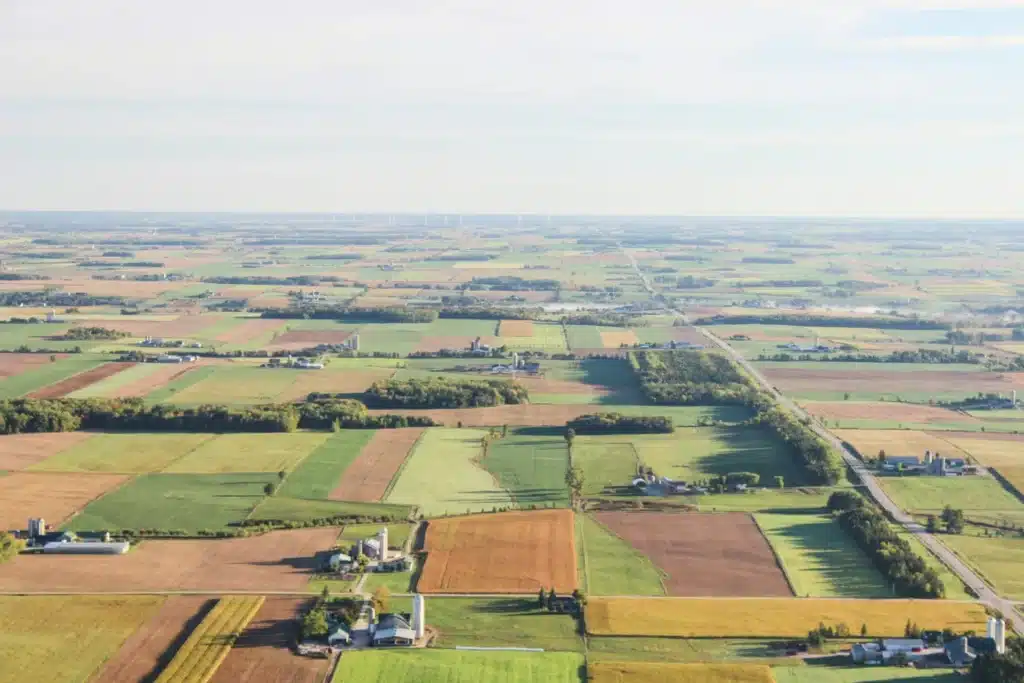
Agritech in BC receives $2 million investment
13 new projects will address challenges that affect food security in BC
By: Eden Chipperfield, News Writer
Agricultural innovation is taking root in British Columbia as 13 new projects to address food production challenges were announced at the Pacific Agriculture Show on January 26.
Agritech — shorthand for agriculture technology — is the industry focus on innovations and advancements to promote efficiency and sustainability within the agriculture sector. BC is a prominent province in the agriculture industry, leading the way in applying Agritech to local food production.
SFU is the host institution for the BC Centre for Agritech Innovation (BCCAI), which gathers minds from various sectors like academia, government, and industry to research food production and security. The BCCAI is supported by Pacific Economic Development Canada (PacifiCan), and the federal and provincial governments.
PacifiCan’s minister of emergency preparedness, Harjit S Sajjan, said to SFU News, “By partnering with the BC Centre for Agritech Innovation, the Government of Canada is helping local food producers develop innovative technological solutions to industry challenges and remain competitive for years to come.” This partnership will strengthen food industry relationships. A $288,000 grant from BW Global Structures Incorporated will launch research into greenhouses and outdoor field crops to increase the production of BC-grown food.
The 13 projects, backed by an investment of a combined $2 million, will focus on critical challenges including “soil health, pest and pathogen management, Indigenous food sovereignty, and training opportunities.” Existing projects that have received donations and support from the BCCAI include BW Global, Lucent bioSciences, Nourish Labs, SFU School of Mechatronic Systems Engineering, and others.
A significant component of the SFU Agritech initiation is learning from Indigenous communities to understand agriculture through traditional teachings. Indigenous food security and food systems include a wealth of knowledge to be applied to Agritech. Part of Indigenous teachings is that food security is achieved when all have access to “sufficient, safe, and nutritious foods,” tending to environmental needs and preserving biodiversity. Agritech incorporates Indigenous food security methods, shaping future mechanisms for food production. SFU Agritech has partnered with Agrotek Industries, an Indigenous-owned “fertilizer and biostimulant manufacturing company” that researches soil effects and amendments within the Okanagan.
“Today marks a significant leap as BCCAI launches 13 projects and training programs, guiding BC’s Agritech sector towards synergy with Indigenous practices and sustainable innovation to establish global leadership,” said SFU professor and BCCAI director, Woo Soo Kim.
Details on B.C. agritech projects receiving support
**2 Rural/First Nations-led projects
The 13 projects represent a total investment of $2 million, including $658,000 in support from the B.C. Centre for Agritech Innovation matched with $538,000 cash and $814,000 in-kind from industry. The goal of these projects is to help companies generate commercially viable products that meet the needs of the agricultural sector while reducing the impacts on the environment and climate.
- ** Tea Creek in Kitwanga received $10,000 to offer an Indigenous-led workshop to Indigenous participants that will provide valuable training in land-and-crop mapping using drone technology in agriculture.
- ** RMD Environmental Group Inc. in West Bank is supporting the preservation of the West Bank First Nations’ medicinal plans by developing a blue elderberry propagation protocol integrating Indigenous knowledge and perspectives with greenhouse technologies through a project investment of $99,000.
- BC Agricultural Climate Action Research Network (ACARN) received $10,000 to work with BCCAI to deliver a one-day workshop involving industry and academic experts who trained participants on emerging technology for sustainability and climate resilience. This workshop included a field tour of local agritech businesses in the Lower Fraser Valley region to demonstrate real-time application of innovative technologies.
- Bevo Farms Ltd. in Langley has a $398,000 project to develop a vertical rolling rack to allow high-quality vegetable propagation while addressing crop performance and labour issues in commercial greenhouses and vertical farms.
- Lucent Biosciences in West Vancouver has a $551,000 project to develop a slow-release boron fertilizer produced using Lucent’s green chemistry process and determine the optimal application rates for different crops.
- ONT Holdings Inc. in Langley has two projects. The first project represents an investment of $71,000 to test and optimizes ONT’s microalgae-based organic fertilizer to improve greenhouse strawberry growth, while also testing a potential carbon sequestration solution. The second project invests $58,000 to develop innovative chicken feeds using an alga with high nutritional value. The project aims to conduct feeding trials with broiler chickens to ensure that the chlorella supplement supports animal growth, health and performance.
- Nourish Labs in Delta’s project represents a $263,000 investment to test its newest fertilizer distribution platform for its efficacy of reducing off-target chemicals. The platform is powered by machine learning algorithm and various ionic sensors.
- Quantotech Solutions Ltd. in Vancouver is identifying feasible packaging options to better protect produce so consumers can harvest fresh lettuce or herbs, while also providing Quantotech with a road map to achieve the global Primus standard (a food safety standard). The project represents a $56,000 investment.
- RMD Environmental Group Inc. in West Bank is supporting the preservation of the West Bank First Nations’ medicinal plans by developing a blue elderberry propagation protocol integrating Indigenous knowledge and perspectives with greenhouse technologies through a project investment of $99,000.
- Simon Fraser University’s School of Mechatronic Systems Engineering is receiving $100,000 to deliver a series of six-day accelerated training programs with hands-on, project-based learning on Agritech. Participants will apply technologies such as artificial intelligence, robotics and more to enhance precision farming for the agriculture and food-processing industries.
- Sipco Innovation Inc. will test a new plant-based, ecofriendly biopesticide as an alternative to synthetic pesticides for greenhouse crops including bell peppers, strawberries and cannabis through a project investment of $97,000.
- The University of the Fraser Valley is receiving $10,000 to deliver interactive vertical farm training that will assist practitioners and students to learn how vertical agriculture differs from open-field, traditional production and how it could be applied to their operations.
